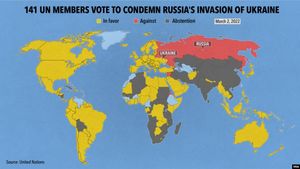Germany stood firm this week on its support for Ukraine amid the continuing conflict with Russia, as President Frank-Walter Steinmeier addressed attendees at the Support Ukraine 2025 summit. He emphasized Germany's commitment to democracy and not forgetting the truths of the past three years, especially the aggression faced by Ukraine from its neighbor. "Russia is the one who started this war. Russia is the one whose tanks entered Ukraine three years ago," Steinmeier stated, pointing out the necessity for Europe to respond collectively to safeguard its freedom.
The president's remarks come at a time when international responses are being reevaluated amid shifting political scenarios, particularly with the approach of the former U.S. administration under Donald Trump. Steinmeier urged, "We need to defend ourselves, but also Ukraine. For three long years, the people of Ukraine have fought for their freedom every day and night." This sense of urgency leads to his call for heightened military support and assistance from European nations to Ukraine, denoting the situation as possibly the most significant for Europe since World War II.
This week also marks the third anniversary of Russia's invasion of Ukraine, prompting European Union foreign ministers to pledge their solidarity. Officials, including EU foreign policy chief Kaja Kallas, echoed Steinmeier's sentiments, acknowledging the gravity of the situation. She noted their anxiety about the geopolitical shift and emphasized, "It is clear the statements coming from the United States concern us all," referring to recent comments from the Trump administration downplaying European security matters.
Kallas expressed hope for the transatlantic relationship, stating, "We expect to resolve our differences this time as well," reflecting the broader concerns among European leadership. Meanwhile, newly elected German politician Friedrich Merz questioned whether NATO could sustain its current form amid these geopolitical tensions. He highlighted the need for Europe to quickly establish independent defense capabilities to face the challenges Trump brings.
Recent discussions emphasized Europe’s need to organize collectively beyond just the EU framework, engaging with other nations like the UK and Norway to address the new threats posed by the changing political scene. The Dutch Foreign Minister Caspar Veldkamp noted, "The era which began with the fall of the Berlin Wall is over, and as Europeans, we must prepare ourselves accordingly."
Analysts at Eurasia Group shared their assessments, indicating Europe's precarious position and the imperative for decisive action. They remarked, "What is clear now is Europe's ability to respond will shape the international order for decades to come." This sentiment was confirmed as EU ministers agreed upon new sanctions against Russia as part of their collective strategy moving forward.
The agreed sanctions mark the 16th package from the EU, reflecting their unwavering determination to respond vigorously to Russia’s aggression. Measures included bans on primary aluminum imports and targeting operators of ships used by Russia to evade sanctions. A meeting is scheduled for March 6, where EU leaders will discuss additional support for Ukraine and European security guarantees.
Maintaining dialogue and cooperation with Washington remains pivotal, emphasizing solidarity with Ukraine. Ursula von der Leyen, President of the European Commission, insisted on accelerating the immediate delivery of arms to Ukraine as Germany and other EU nations strategize their next steps. "We must be at the forefront of military support because accelerating weapon deliveries will be central to our actions over the coming weeks," she stated during her recent visit to Kyiv.
All these developments highlight not only the challenges Europe faces with the war-torn Ukraine but also the collective responsibility taken to respond to this crisis—reinforcing their commitment to freedom and democratic values. Amid changing political landscapes and global power dynamics, European unity remains steadfast.



